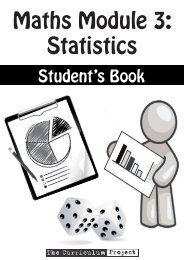Teacher's Guide - The Curriculum Project
Teacher's Guide - The Curriculum Project
Teacher's Guide - The Curriculum Project
- No tags were found...
Create successful ePaper yourself
Turn your PDF publications into a flip-book with our unique Google optimized e-Paper software.
Production (cont’d)Problems of land ownershipGroupwork1. Divide the students into three groups. Give each group a different kind ofland ownership to discuss: private, public or collective. Tell them to read theexamples about Mazalia carefully. Give them 10 minutes to discuss it andwrite down their ideas. Ask each group to present their ideas to the class.(You may also want to ask them to think of advantages as well asdisadvantages of different kinds of ownership.)Disadvantages of different kinds of land ownership:Private ownership - Everybody needs to use land (natural resources) to survive. If too muchland is privately owned by a small number of people, then it can be difficult for other people to getaccess to natural resources. <strong>The</strong> owner might refuse to allow them to use the land, or charge thema very high price. (Blue Village)Public ownership - Governments don’t always act in the interests of the people, particularly innon-democratic countries. If the government owns most of the natural resources, there is a riskthat they will be used for the benefit of the government and its friends only, and not the people.(Green Village)Collective ownership - If everybody in a community has equal ownership of natural resources, itcan be difficult to get everyone to agree on how they should be used. (Red Village)Fighting for agricultural land rights in BrazilPre-teach:colonise (verb): to take over, populate and rule an area of land.landless (adjective): without land.inequality (noun): not being equal.occupy (verb): to enter and take control of a place.constitution (noun): the basic principles and laws of a nation.to cultivate (verb): to grow.slave (noun): a person who is owned by another person, and usually used for labour.condemn (verb): to say that something is wrong.Ask students to read the text on this page and the next page. Give themabout 10 minutes. <strong>The</strong>y should write down any words that they don’t know.Elicit any words that students don’t know. Ask if they can guess the meaning.If not, give them a dictionary to look it up and tell the class, or tell themyourself.<strong>The</strong> <strong>Curriculum</strong> <strong>Project</strong> ECONOMICS: an introduction - Teacher’s <strong>Guide</strong>31



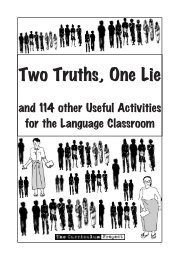
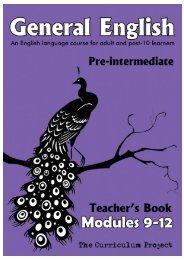

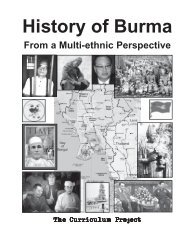


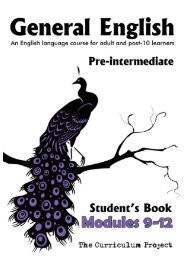

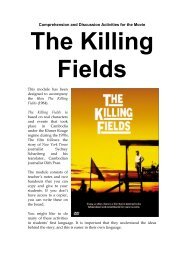
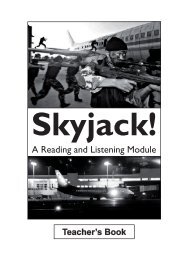
![[Eng] Nov 2012 DRAFT - The Curriculum Project](https://img.yumpu.com/45590859/1/184x260/eng-nov-2012-draft-the-curriculum-project.jpg?quality=85)


